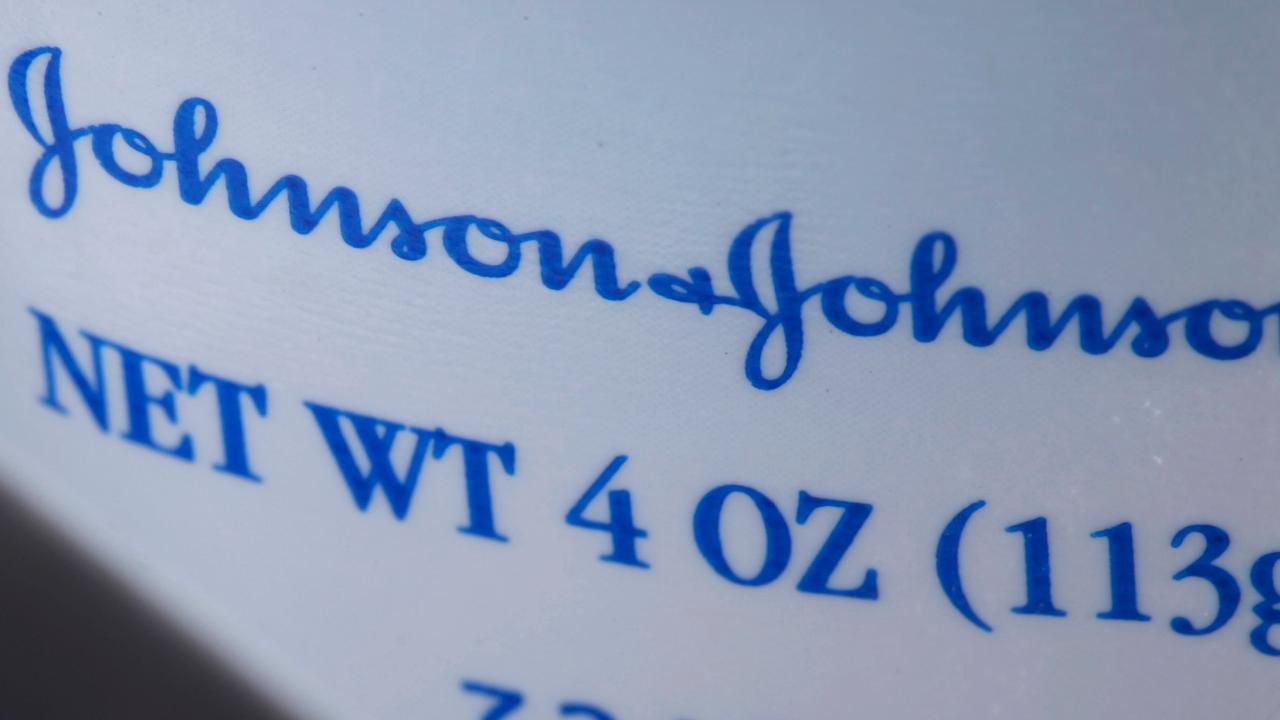J&J loses motion to overturn a $4.7B baby powder verdict
Things just went from bad to worse for consumer product giant Johnson & Johnson.
After losing more than $40 billion in value amid an explosive Reuters report that it knew its iconic baby powders, at times, tested positive for asbestos, a carcinogen—it lost a bid to overturn a $4.7 billion verdict to plaintiffs who blamed the product for giving them cancer.
On Wednesday, Johnson & Johnson lost its motion to reverse a jury verdict that awarded $4.14 billion in punitive damages and $550 million in compensatory damages to a group of women that cited the cause of their ovarian cancer was from its baby powder and other talc products.
The verdict was upheld by Judge Rex Burlison of the 22nd Circuit Court in Missouri. The plaintiffs included 22 women and their families and it is one of the largest personal injury awards on record.
In a statement to FOX Business, a Johnson & Johnson spokesperson said, "The trial court judge denied a post-trial motion to set aside the verdict, which the company must make in order to file its formal appeal. The same judge has denied similar motions on prior verdicts in his court that were ultimately overturned by the appellate courts. We are confident this verdict will also be overturned on appeal."
| Ticker | Security | Last | Change | Change % |
|---|---|---|---|---|
| JNJ | JOHNSON & JOHNSON | 238.64 | -1.35 | -0.56% |
Still, the news comes as the company’s CEO Alex Gorksy was forced to issue a national ad campaign on Monday, reiterating to the public that its baby powders are completely safe despite reports from both Reuters and The New York Times.
In the video, he cites tens of thousands of studies that have proven talc does not cause cancer or asbestos-related disease. Gorsky also referenced that the U.S. Food and Drug Administration, (FDA) and other global regulators, have continually proven the product to be asbestos-free.
Shares have remained under pressure for the New Brunswick, New Jersey-based pharmaceutical giant despite the appeal, taking another dip on Wednesday amid the news of the motion.
Gorksy also referenced the Missouri case in the video, saying it planned on appealing the judgement.
Last Friday, Reuters released a detailed investigation chronicling how J&J knew about the presence of cancer-causing asbestos in its iconic baby powder and allegedly hid it from the FDA on at least three tests by three different labs from 1972 to 1975.
J&J immediately released a statement following the article, saying it was “one-sided, false and inflammatory.”
"Simply put, the Reuters story is an absurd conspiracy theory, in that it apparently has spanned over 40 years, orchestrated among generations of global regulators, the world's foremost scientists and universities, leading independent labs, and J&J employees themselves," the company said in a statement. It said that J&J's baby power is "safe and asbestos free,” citing the studies of "more than 100,000 men and women,” which they said shows talc does not cause "cancer or asbestos-related disease."




















